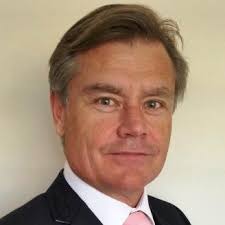Hedge fund managers get behind ESG
Hedge fund managers are increasingly putting their assets to work in the ESG space, with more than 10 per cent, according to a global survey by the Alternative Investment Management Association, allocated to such strategies. The survey coincides with new activity, too, in Australia, ahead of the next industry Forum which will include an ESG focus.
The AIMA survey, the results of which were published last week in London, shows that about US$59 billion has been allocated to ‘responsible investing’ by members of AIMA and its affiliate organisation, the Cayman Alternative Investment Summit. The 80 hedge fund managers in the survey account for US$550 billion.
According to Michael Gallagher, AIMA Australia general manager, local hedge funds are among the most progressive in the world with regards to responsible investing. “ESG is probably our most talked about topic throughout 2017 and into 2018 from an investor and asset manager perspective,” he said.
“Hedge fund managers, who tend to be big-picture focused irrespective of what strategy they run, are certainly leveraging ESG as an indicator of future company and sector performance and applying overlays accordingly.
“Further, managers here and in other markets are responding to growing demands from alternative asset investors who, by and large, like to invest where they can make a difference.”
Gallagher said that the next annual AIMA Australia Forum, to be held at Sydney’s Westin Hotel on September 12, would have a panel dedicated to ESG. And other sessions would also include ESG discussions. ESG is increasingly being seen by managers as a long-term alpha generator.
The AIMA survey results said that 40 per cent of managers are already investing using responsible investment principles, with total assets in such investments worth US$59 billion – a little over 10 per cent of the respondents’ combined hedge fund AUM. Significantly, one-in-five firms said they are now committing at least 50 per cent of their firms’ assets to RI, AIMA said.
“Moreover, firms said they had seen a roughly 50 per cent increase in demand from either current or prospective investors in the past 12 months. Over 70 per cent of North American firms reported increased investor interest in the last year, while half of European firms reported the same. In order to meet a growing investor appetite, about 40 per cent of firms had either already hired an RI specialist, or were planning to do so.”
The practice of responsible investment was found to be most prevalent among larger firms. Some 80 per cent of firms with US$1 billion or more in hedge fund assets reported an increase in their RI capabilities, compared to a third of sub-US$1 billion firms. But among the smallest firms, those with US$100 million or less in AUM, around a quarter invest a majority of their assets following RI principles, indicating the emergence of a number of specialist RI hedge fund firms.
Just on 38 per cent of firms surveyed use ESG factors to evaluate investment opportunities, while 18 per cent have adopted socially responsible investments via the negative screening of companies from their investment portfolio. A further 5 per cent of those who responded to the survey said they engage in impact investing.
The report – titled “From Niche to Mainstream: Responsible Investment and Hedge Funds” – also cast light on some challenges that firms face when looking to incorporate RI into their investment strategies. The two most commonly referenced issues, cited by almost half of all respondents, were “inadequate methodologies for the calculation of sustainability risks” and the “lack of relevant disclosure from companies”.
Jack Inglis, AIMA’s global chief executive, said: “Responsible investment is becoming increasingly important to the hedge fund industry and firms are responding to investor demand by investing in the data and expertise they need in order to accurately measure the social and environmental dimensions of their investments. As such investments become more sought after, these additional fiduciary duties require managers to ensure they have a very clear understanding of their clients’ investment objectives. In the coming years, we expect the industry to be very innovative in matching up the need to deliver on investors’ deeply held beliefs whilst continuing to deliver on the goal of providing superior risk-adjusted returns.”
The AIMA Australia Forum keynote speakers are expected to be announced within the next two weeks. For sponsorships, sessions and other inquiries: Michael Gallagher – [email protected]
– G.B.









